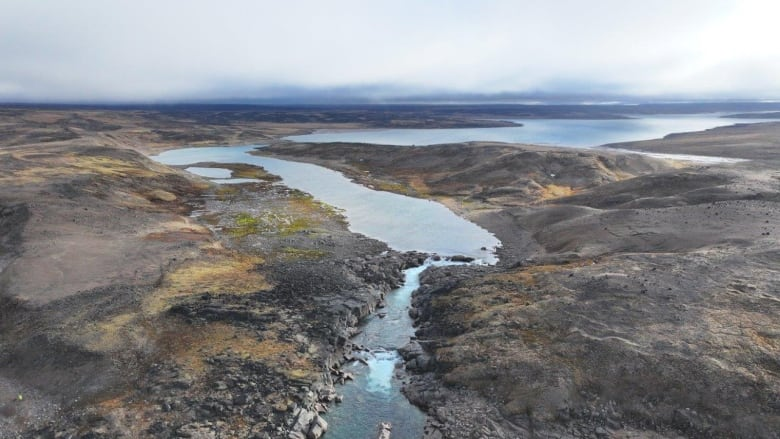Potential location identified in revival of Iqaluit hydro project

By
Territorial government scrapped plans for hydro project in 2014 due to lack of capital
An Inuit-owned clean energy developer is reviving plans for hydro energy in Iqaluit, and it’s found a potential site.
Nunavut Nukkiksautiit Corporation (NNC) wants to explore the viability of the Kuugaluk River (McKeand River South), situated 60 kilometres northeast of Iqaluit.
It held community consultations last year about 16 possible locations for clean energy, including hydro.
The Kuugaluk site, director Heather Shilton said, came out on top, as there is little land, water and resource use in the area. Though she said there will be some impacts, like on nearby snowmobile trails, which will need further study.
“There are impacts with continuing to stay on diesel. There’s going to be impacts when we’re looking at a renewable energy project as well,” she said.
“Our job is just to make sure that there is enough information that Iqalummiut can weigh those options and make a decision about what their energy future looks like.”

The Iqaluit hydroelectric project was previously under the territorial government’s Qulliq Energy Corporation (QEC).
It was put on hold in 2014 due to the high capital costs, which went beyond QEC’s funding and borrowing ability.
Potential to replace diesel use
If successful, Shilton believes the hydroelectric project could replace the use of diesel in Iqaluit.
“In Nuuk [Greenland] for instance, there’s a hydro facility there that is their prime power, but they still have a diesel plant as backup… I think something similar could be done here,” Shilton said.
In a written statement, QEC said it’s “aligned with NNC on the significant benefits of this renewable project, based on the research and information we’ve received thus far.”
If the project progresses further, Iqaluit Mayor Solomon Awa says the city will play a role in approving the land for construction, and connecting any power lines.
He said it’s still too early for those discussions at this stage, but he’s optimistic hydro power can help ease the burden on residents.
“As a homeowner, we pay a lot of electricity each month and hopefully that will reduce the cost,” he said.

There are also questions about how much NNC scales up the project, such as whether to include the electrification of heat, which is currently 100 per cent run on diesel.
“That would grow the demand on electricity pretty significantly,” Shilton said.
Financing the $500M project
The current price tag for the project is roughly $400 to $500 million, similar to the previous estimates when it was under the Government of Nunavut.
The territory had already spent $10 million on preliminary studies, which identified two other potential locations for the project.
Shilton said that money did not go to waste, but NNC has to do more studies given the advancements in technology since then. It’s received federal funding for the first stages of their research.
She believes NNC is better positioned financially to get the project over the line because as an Inuit-owned private company, it can access more funding streams and take on more debt than a government-owned entity like QEC.
But she sees room for an economic partnership with QEC.
“I think there’s some potential for us to collaborate and understand what this ownership structure could look like,” she said.
Related stories from around the North:
Canada: Nuclear power no solution for the N.W.T., some experts suggest, CBC News
Finland: Lapland among regions not in favour of wind power compensation for eastern Finland, Yle News
Norway: Will the green transition be the new economic motor in the Arctic?, Eye on the Arctic
Sweden: Wind farm delays in northern Sweden could hinder green revolution, Radio Sweden
United States: Dunleavy says Alaska can boost fuels, renewables; clean energy advocates disagree, Alaska Public Media



